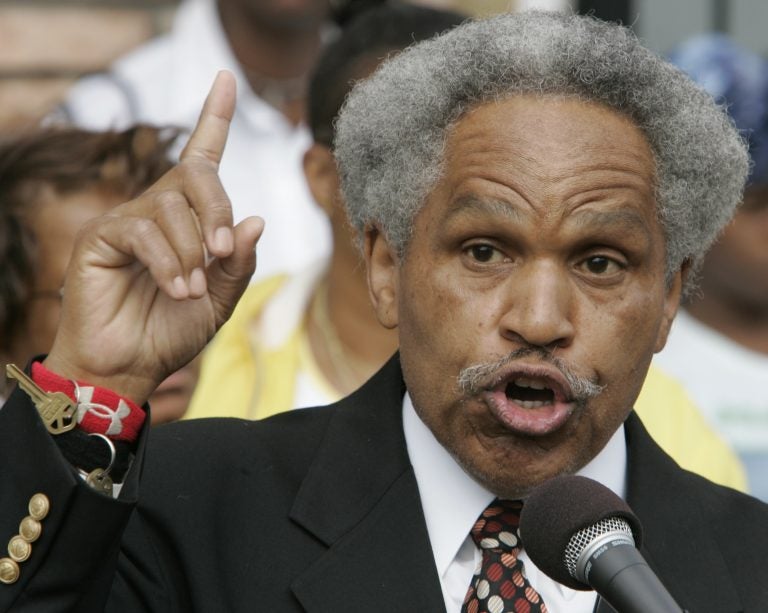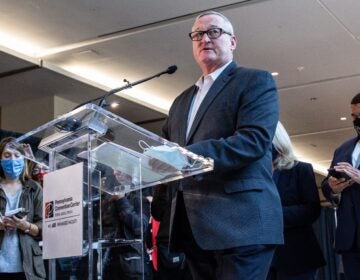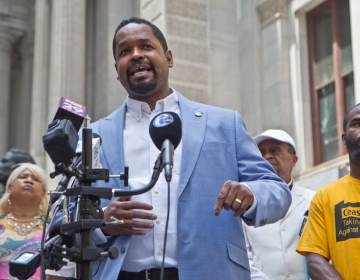Former mayor sues current mayor over Philly tax assessments
Former Philadelphia Mayor John Street, an adviser to mayoral candidates Anthony Williams, has sued Mayor Jim Kenney, claiming the city’s property tax assessments are unfair.

Former Philadelphia Mayor John Street. (George Widman/AP Photo)
Former Philadelphia Mayor John Street has dusted off his law license and put it to work by suing current Mayor Jim Kenney, challenging the city’s system of property tax assessments as “discriminatory and unlawful.”
Philadelphia’s tax assessments have been criticized in reviews by City Council and the city controller as inconsistent and unfair.
Street said in a telephone interview he became aware of the seriousness of the problem when he looked into the issue as a policy adviser for state Sen. Anthony Williams, who is challenging Kenney in the May 21 Democratic primary.
“I was shocked,” Street said of what he found.
His client in the lawsuit is Robert Cunningham, a North Philadelphia homeowner whom Street said has experienced a 61% tax increase.
Years ago, property assessments were conducted by the Board of Revision of Taxes.
Its members were appointed by the judges of the Philadelphia Court of Common Pleas, which Street said, “gave them a measure of independence from the mayor.”
In the current system, a mayoral appointee determines assessments, Street said, allowing the administration to effectively raise taxes without going to City Council in violation of the state Constitution.
“It is, in my judgment, the most egregious case of taxation without representation that I have ever seen,” Street said.
Street asked the court to prevent the city from collecting property taxes based on current assessments and to order the city to recalculate assessments dating back to 2016.
In a statement, Kenney spokesman Mike Dunn called the suit “frivolous” and “a political stunt,” and noted that any homeowner can appeal an assessment.
Philadelphia Common Pleas Court Judge Gary Glazer has given Street 10 days to file a memorandum of law for his complaint, and the city another 10 days to respond.
After that, Glazer’s order says, “The court shall determine, at its discretion, if a hearing is necessary.”
WHYY is your source for fact-based, in-depth journalism and information. As a nonprofit organization, we rely on financial support from readers like you. Please give today.





